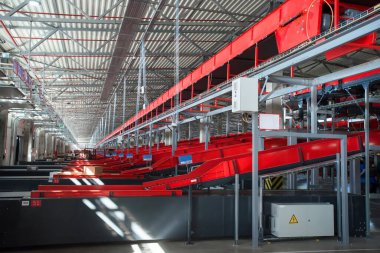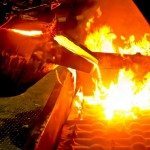At May Conveyor, we pride ourselves on providing high-quality conveyor belting solutions that cater to a wide range of industries. Our conveyor belts are designed to meet the specific needs of various applications, ensuring efficiency and reliability in your operations. In this blog post, I will discuss the different types of conveyor belts we offer, the materials used, and their applications in the waste & recycling, machining, stamping, and manufacturing industries.
Types of Conveyor Belts
We offer a variety of conveyor belts, each tailored to specific industrial requirements. Here are some of the most popular types:
1. Steel Belt Conveyors: Ideal for heavy-duty applications, these belts are robust and durable, making them perfect for transporting heavy materials in manufacturing and waste management.
2. Rubber Belt Conveyors: Known for their flexibility and resistance to wear and tear, rubber belts are suitable for a range of applications, including machining and stamping.
3. Plastic Belt Conveyors: Lightweight and corrosion-resistant, plastic belts are often used in industries where hygiene is paramount, such as food processing and pharmaceuticals.
4. Wire Mesh Belt Conveyors: These belts offer excellent airflow and are used in applications requiring cooling, heating, or draining, making them a great choice for stamping and manufacturing processes.
Materials Used
The materials we use in our conveyor belts are selected for their durability and suitability for specific applications:
- Steel: Provides strength and resistance to high temperatures and abrasion.
- Rubber: Offers flexibility, resilience, and resistance to chemicals.
- Plastic: Lightweight, corrosion-resistant, and easy to clean.
- Wire Mesh: Ensures excellent airflow and can withstand high temperatures.
Applications in Different Industries
Our conveyor belts are designed to enhance efficiency and productivity in various industries:
- Waste & Recycling: Our heavy-duty steel belts are perfect for handling large volumes of waste, ensuring efficient processing and recycling operations.
- Machining: Rubber belts are ideal for machining processes, providing the durability needed to handle metal shavings and other by-products.
- Stamping: Wire mesh belts are commonly used in stamping operations, offering the strength and airflow needed to cool down stamped parts.
- Manufacturing: Our range of conveyor belts supports different manufacturing processes, from transporting raw materials to moving finished products along the production line.
Advantages of May Conveyor Belts
Choosing May Conveyor belts comes with several advantages:
- Durability: Our belts are built to last, reducing downtime and maintenance costs.
- Customizability: We tailor our conveyor belts to meet your specific needs, ensuring optimal performance.
- Efficiency: Our belts enhance the efficiency of your operations, helping you achieve higher productivity.
At May Conveyor, we are committed to providing the best conveyor belting solutions for your industry. Explore our range of conveyor belts and see how we can help you optimize your operations. For more information, visit May Conveyor.








